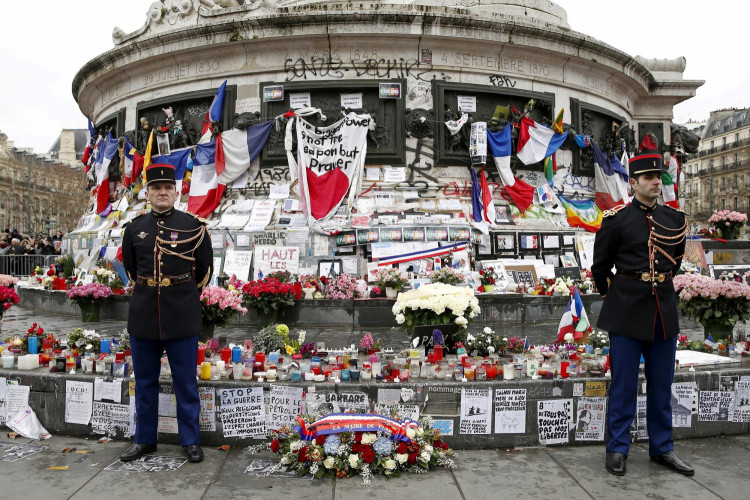The most wanted woman in France - Hayat Boumeddiene - has been convicted by a French court and sentenced to 30 years in jail following a trial of 14 accomplices in the Charlie Hebdo and Jewish supermarket attacks in Paris in 2015, The Independent reported Thursday.
Brothers Cherif and Said Kouachi stormed Charlie Hebdo's offices in Paris, unleashing a hail of bullets and killing 12, Jan. 7, 2015, almost 10 years after the satirical magazine published cartoons the poked fun of Prophet Mohammed.
A third gunman, Amedy Coulibaly, shot dead a female police officer and then four Jewish hostages in a kosher store in downtown Paris. "You're Jews and French, two things I hate the most," Coulibaly told them.
Like the Kouachis, Coulibaly was killed in the gunfight with police. Boumeddiene fled to Syria and is believed to still be alive. The two men who helped her flee France are believed to be dead.
Boumeddiene was Coulibaly's former wife and photos of the couple made public moments after the attacks show her donning a niqab and aiming a crossbow at the camera.
The ruling puts closure to the three-month court proceeding in connection to the three-day spate of killings across Paris that terror groups al-Qaida and ISIS have both claimed responsibility.
Some of France's cartoonists were killed at the publication. A total of 17 people were killed during the attacks.
In the course of the trial, France was hit by fresh attacks, a surge in new COVID cases among the defendants, and damaging testimony that bear witness to the murders that continue to rattle the country.
Charlie Hebdo editor Laurent Sourisseau, who survived the attack, was present to hear the court decision, along with Malian-born Lassana Bathily -- considered a hero and granted French citizenship for saving several customers at the supermarket just East of Paris.
The trial has revived one of the country's darkest chapters, just as another string of Islamist attacks this autumn -- including the decapitation of a school teacher -- prompted French authorities to clampdown on what it labels Islamist separatism.






